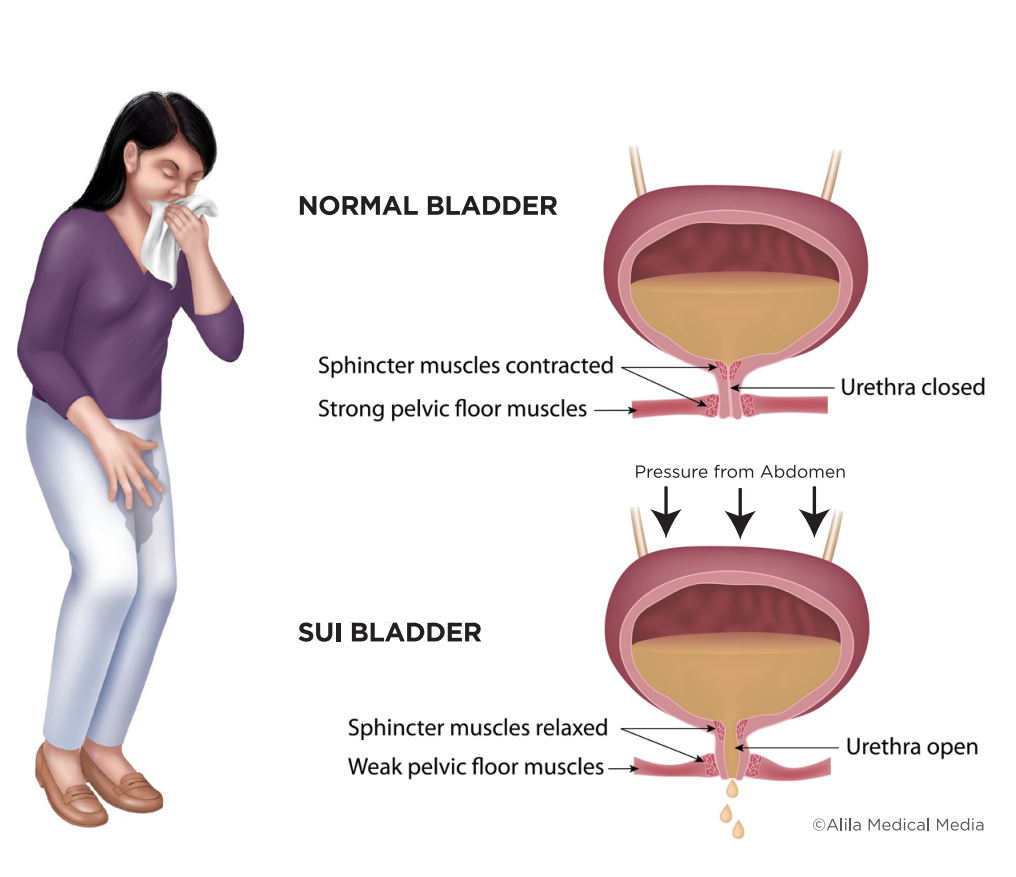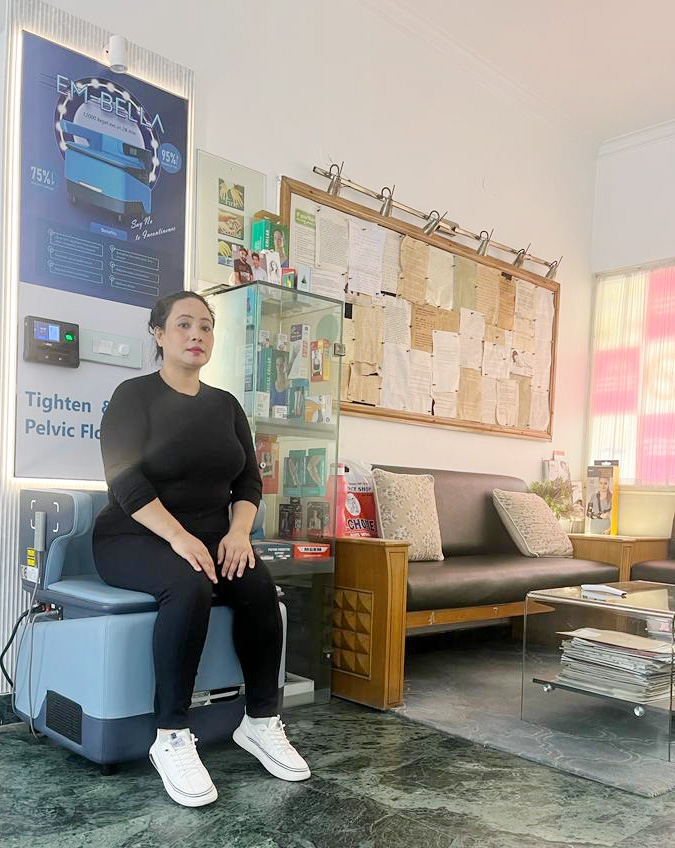Incontinence Diagnosis & Treatment
Stress Incontinence
Talk to us today, if you experience loss of urine when you exert pressure like coughing , sneezing, laughing or lifting a heavy weight and even if you feel sudden intense or urge to urinate, weakness and leg cramps. all these are related to stress incontinence.
Don’t be embarrassed & don’t live with it. remember incontinence is treatable at all ages.
Quick Results
- We offer five t/t sessions of specialised program with considerable results . upon completion a home program is prescribed which includes exercises , diet and lifestyle modification. The total cost of treatment program is three thousand rupees which includes consultation and treatment session.
Do remember incontinence is treatable at all ages.
we offer quick results by stimulating weak muscles, pressure biofeedback and also concentrate on nutrition which helps in strengthening weak muscles and nerves for faster recovery.
4


Stress Incontinence Physiotherapy treatment
Stress incontinence is a common condition characterized by the unintentional loss of urine during activities that increase intra-abdominal pressure, such as coughing, sneezing, laughing, or physical exertion. Physiotherapy can be an effective and conservative approach to manage stress incontinence. Here are some physiotherapy treatments that may be recommended:
- Pelvic Floor Exercises (Kegel exercises):
- Pelvic floor exercises are designed to strengthen the muscles that support the bladder, urethra, and other pelvic organs.
- A physiotherapist can teach you how to correctly perform Kegel exercises and develop a personalized exercise program based on your specific needs.
- Biofeedback:
- Biofeedback involves using sensors to provide feedback about pelvic floor muscle activity. This feedback helps you learn how to properly contract and relax your pelvic floor muscles.
- Biofeedback can enhance your awareness of these muscles and improve your ability to control them.
- Electrical Stimulation:
- Some physiotherapy programs may include electrical stimulation of the pelvic floor muscles using a small electrical device.
- This can help activate and strengthen the muscles, particularly in individuals who have difficulty contracting them voluntarily.
- Bladder Training:
- Bladder training involves scheduled voiding and gradually increasing the time between trips to the bathroom.
- A physiotherapist can help you develop a bladder training program to improve bladder control and reduce urgency.
- Lifestyle and Behavioral Modifications:
- The physiotherapist may provide guidance on lifestyle changes, such as managing fluid intake, avoiding bladder irritants (caffeine, alcohol), and adopting proper toileting habits.
- Posture and Alignment Education:
- Correct posture and body alignment can play a role in managing stress incontinence. Physiotherapists may provide education on proper body mechanics to reduce intra-abdominal pressure on the pelvic floor.
- Weight Management:
- Maintaining a healthy weight is important, as excess body weight can contribute to stress incontinence. Physiotherapists may offer advice on weight management strategies.
- Breathing Techniques:
- Deep breathing exercises can be beneficial in reducing intra-abdominal pressure and improving overall pelvic floor function.
It's important to consult with a qualified physiotherapist or healthcare professional to receive personalized advice and a tailored treatment plan based on your specific condition and needs. Additionally, it's advisable to consult with a healthcare provider to rule out any underlying medical conditions contributing to stress incontinence.
Em Bella Machine for Incontinence Treatment
Embella is the great innovation for the treatment of Incontinence
If anybody is concerned about bladder leaks, then there is a way to regain control.
A non invasive and no surgical treatment using electromagnetic waves to strengthen the pelvic floor is New to VikalpPhysio is the Embella Chair.
Regain your freedom, Thanks with the Embella Chair's long lasting & effective results. Live life with more confidence.
BOOK AN APPOINTMENT TODAY
Come to our Physiotherapy clinic, address is A-95, Sector-33, Noida. For a chat with one of our Incontinence expert physiotherapist to plan the right Physiotherapy treatment in Noida & Delhi NCR India for you to get rid of pain in no time.